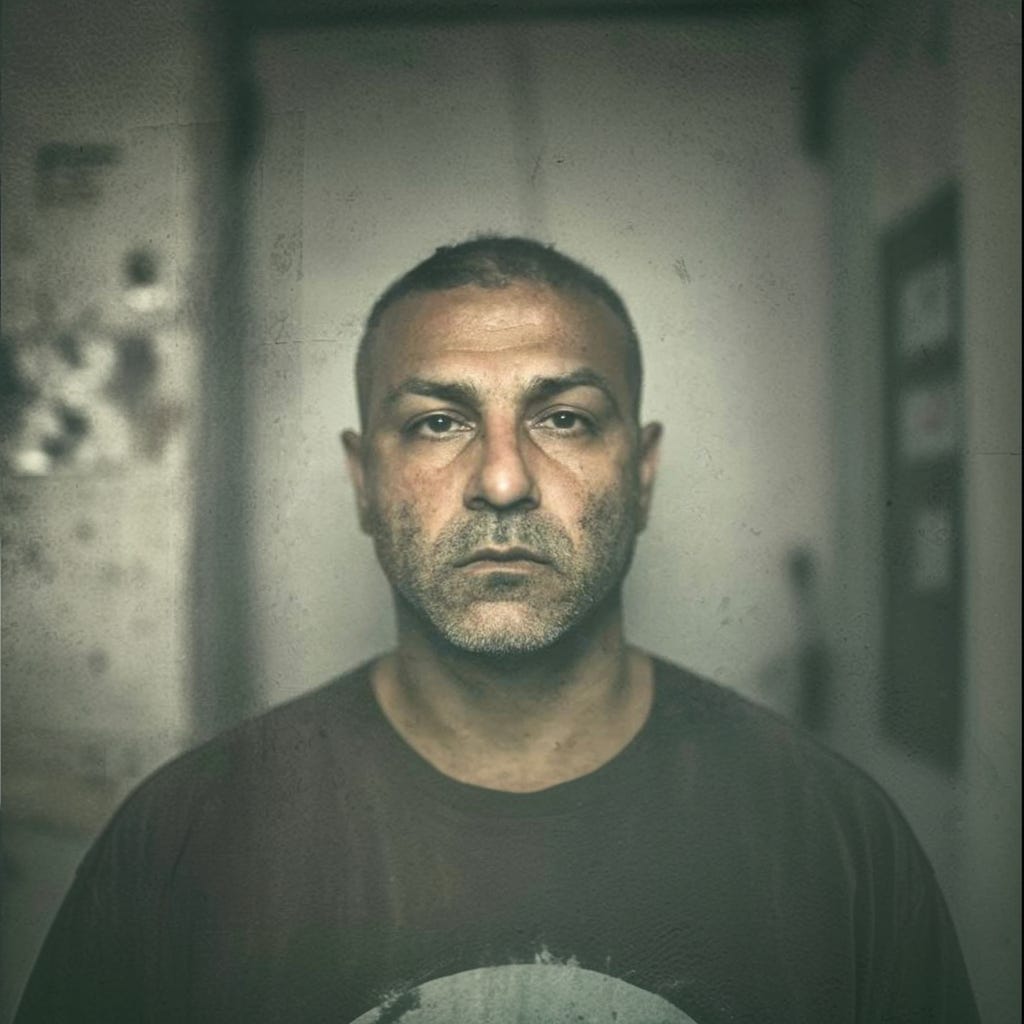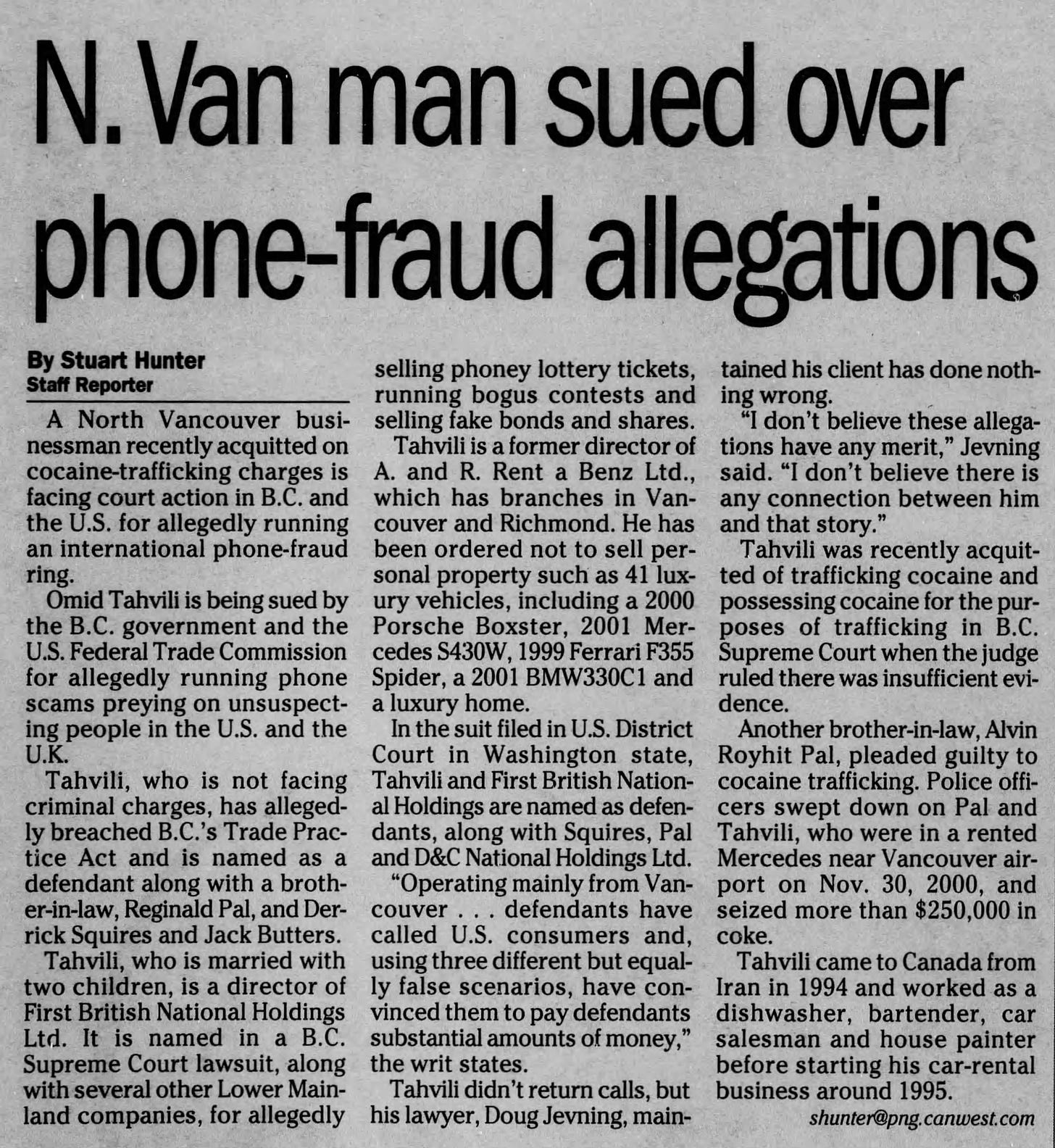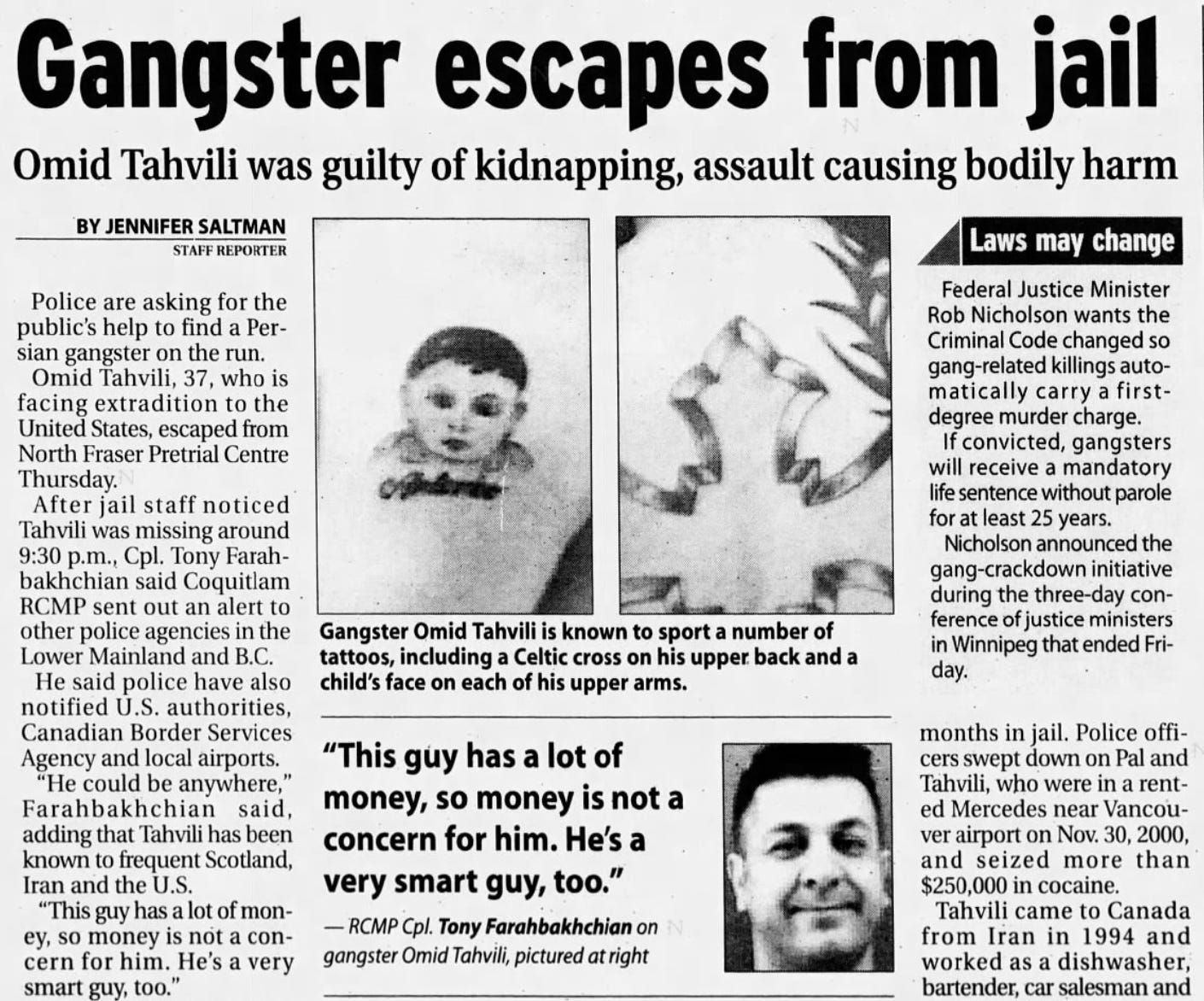Chasing A Ghost: The Escape and Disappearance of Omid Tahvili
In November 2007, Iranian-Canadian gangster Omid Tahvili walked out of a maximum-security jail in British Columbia after bribing a guard. He has not been seen since
In November 2007, a dangerous drug kingpin casually walked out of the North Fraser Pretrial Facility in British Columbia wearing a janitor’s uniform. Omid ‘Nino’ Tahvili escaped prison to become one of the world’s most elusive fugitives, still at large to this day.
Origins of a Kingpin
Born on October 31, 1970, Omid Tahvili, like many immigrants at the time, left his native Iran in 1994 to begin a new, prosperous life in Canada with his wife and children.
However, his carefully crafted image as a family man earning an honest living as a blue-collar worker and later a successful businessman eventually fell apart, as the temptations of fast money and exploiting others overcame him. Tahvili did not hesitate to take advantage of the illicit opportunities that presented themselves.
It began with drugs. In November 2000, Tahvili and his brother-in-law were caught with three kilograms of cocaine in a coordinated bust led by the Vancouver Police and the Royal Canadian Mounted Police.
Tahvili’s brother-in-law took the fall and was given a plea bargain. The duo’s gamble on the already overwhelmed and loophole-ridden Canadian justice system proved effective. After Tahvili pleaded not guilty, authorities could not establish a solid connection to the drugs, and the fledgling kingpin walked free.
However, Tahvili was still on the radar of law enforcement, and according to the RCMP, by 2003, he had dozens of Iranian immigrants working for his organization.
Scam Operation
At the same time that he was allegedly trafficking drugs, Tahvili was involved in electronic fraud. His victims were vulnerable senior citizens.
The early 2000s saw a dramatic shift in technology and communications. The world was changing fast, leaving many gullible and uninformed citizens prey to elaborate telemarketing and mail scams. Law enforcement and legislation were also slow to keep pace with these rapid developments, which provided fertile ground and valuable time for criminals like Tahvili to profit.
Tahvili and his fellow scammers would call senior citizens and claim they had won the lottery. However, in order to receive their winnings, the unsuspecting victims were coerced into paying hidden fees and mysterious taxes before they could claim their “payout.” Many of these victims, who were located in the United States, Canada, and the United Kingdom, handed over their life savings and ended up bankrupt as a result.
Sadly, when the FBI and other law enforcement entities eventually caught wind of Tahvili’s activities, more than enough damage had been done. The scamming enterprise raked in over three million dollars during a three-year period before Tahvili’s arrest warrant for numerous counts of fraud was finally issued in early 2003 by a federal court in the Central District of California.
Arrest
However, Tahvili remained in Canada, evading arrest and extradition while continuing his criminal operations. He showed little concern for the authorities, despite the gravity of his crimes. This growing audacity prompted him to commit further offences, such as the kidnapping and sexual assault of the brother-in-law of a man who allegedly stole money from him and fled to Vietnam.
What Tahvili did not know was that the authorities were waiting for a moment like this to make their move. The RCMP located the assaulted man, who provided crucial information about Tahvili’s criminal network.
Tahvili was successfully apprehended in July 2005, and police uncovered corroborating evidence in the form of thousands of dollars in cash scattered across several cities.
Tahvili was jailed in the maximum-security North Fraser Pretrial Centre in British Columbia. He was ordered extradited to the United States in May 2007. However, his lawyer, Amandeep Singh, a high-profile Canadian attorney, was able to delay the proceedings by appealing to the British Columbia Court of Appeal.
Escape
While awaiting his sentence in North Fraser Pretrial Facility, Tahvili managed to exploit the human weaknesses of the staff responsible for his custody. He bribed an officer named Edwin Ticn with $50,000 to assist in his escape. Ticn himself even escorted him out. Tahvili dressed up as one of the cleaning staff, walked past hundreds of security cameras, and exited through the front door.
Ticn, however, was not as fortunate. He was arrested just hours after the escape and later sentenced to three years in prison. The prosecution had requested a sentence of five to ten years; however, the judge took into consideration Ticn’s problems with alcohol and gambling, finding that they factored into his decision to help Tahvili.
Fugitive Status
Since his jailbreak, Tahvili has not been seen or heard from again, apart from a few communications with his lawyer, his now-ex wife, and a voicemail to law enforcement from an unknown location. These actions were intended to confuse law enforcement, lawyers, and judges, as well as to buy him time.
The general consensus is that he probably returned to his homeland. Given the geopolitical tensions between Iran and the United States, extradition remains nearly impossible.
Because of his mastery in manipulation and extensive networks with crime groups throughout Canada and the United States, the FBI placed him on their most wanted list, alongside the now deceased Osama Bin Laden, the now deceased Sicilian mafia boss Matteo Messina Denaro, Indian drug lord Dawood Ibrahim, and now imprisoned Mexican drug lord Joaquín “El Chapo” Guzmán.
The official warning from the FBI states, “Tahvili may travel throughout Europe, Canada, or the Middle East. He may have a moustache and goatee. Tahvili is considered extremely dangerous.” He also bears several tattoos, including those of a spiked spiral, a Celtic cross, and a child on each arm.
Omid Tahvili has been on the run for over 17 years and is wanted in both Canada and the United States.
Sources:
“Convict on the loose but public not at risk: RCMP.” CBC News, 16 November 2007, https://www.cbc.ca/news/canada/british-columbia/convict-on-the-loose-but-public-not-at-risk-rcmp-1.630764
“Prison guard gets 3 years for aiding escape.” CBC News, 8 August 2008, https://www.cbc.ca/news/canada/british-columbia/prison-guard-gets-3-years-for-aiding-escape-1.750285
Vardi, Nathan. “In Pictures: The World's 10 Most Wanted Fugitives.” Forbes, 13 May 2010, https://www.forbes.com/2010/05/13/bin-laden-joaquin-guzman-dawood-ibrahim-business-world-most-wanted_slide.html












